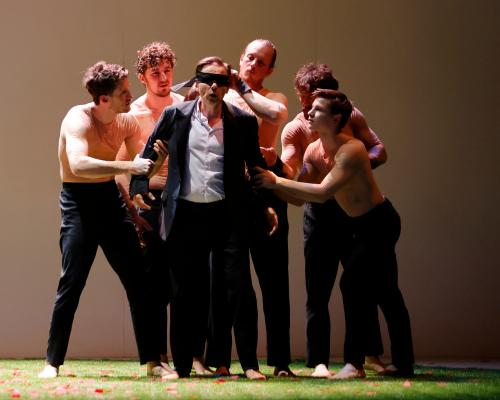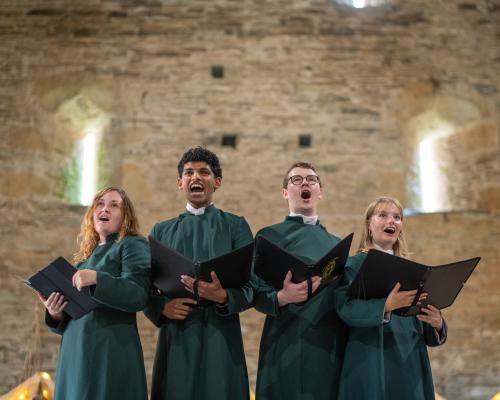
Following on from their enthralling Southbank Centre Daphnis et Chloé earlier this year, Orpheus and Eurydice offers a second chance to experience the work of Brisbane-based Circa under the director, choreographer and set designer Yaron Lifschitz. With its streamlined dramatic structure and built-in ballets, Gluck’s great reformation opera proves fertile ground for the company’s agile blend of acrobatics and contemporary dance.
The action opens with the dying Eurydice tumbling through space. So extreme is Orpheus’s grief, it seems, that he has wound up in an asylum, strapped to one of a series of hospital beds that, along with a tiny glass house, make up Lifschitz’s minimalist set. The acrobats swirl over and under him – every man an Orpheus, every woman a Eurydice – recalling the emotional volatility of their relationship and Orpheus’s feverish hopes and fears for their future.
Throughout this stark yet reasoned production we are never entirely sure what is real and what exists merely in the protagonist’s head. Are the sombre chorus members disembodied hospital orderlies or fellow inmates? The final scene suggests the latter, but the director keeps us guessing.
Lifschitz is a master of the striking image: a human tower that collapses to audible gasps; a staircase of bodies that one of the Orpheus figures must ascend. Only the occasional wobble reminds us of the extreme athletic demands. Suspended loops enable acrobats to float and fly while hinting at hangmen’s nooses or restraints. White institutional walls are deftly lit by Alex Berlage in vivid crimsons, greens and minty blues. Libby McDonnell’s black, white and red costumes are simplicity itself; Boris Bagattini’s sparing video projections include occasional closeups on a troubled face and surtitles that cleverly dissolve in trails of mist.
Gluck’s three-hander opera is condensed here by combining the roles of Eurydice and Amor, as if Orpheus has lost the power to differentiate between the two. Iestyn Davies is outstanding as the bereaved husband, his tireless countertenor rich and even, with memorably light and lyrical top notes. Physically he holds little back, at one point balancing on the shoulders of a cluster of acrobats. The climax, an affecting account of Che Farò Senza Eurydice, finds him abandoned on a bare stage, arms wrapped around his body as if in a straitjacket.
Samantha Clarke’s soprano rings out bright and frisky as Amor before turning lush and sorrowful as Eurydice. Laurence Cummings leads the Scottish Chamber Orchestra through a bracing, finely judged account of the score, the Scottish Opera Chorus matches his intensity, singing with power and discipline. Their unnerving final appearance as the bloodied Orpheus is strung up by the heels in his own private Bedlam is one of the production’s most haunting images.
• At Edinburgh Playhouse until 16 August







